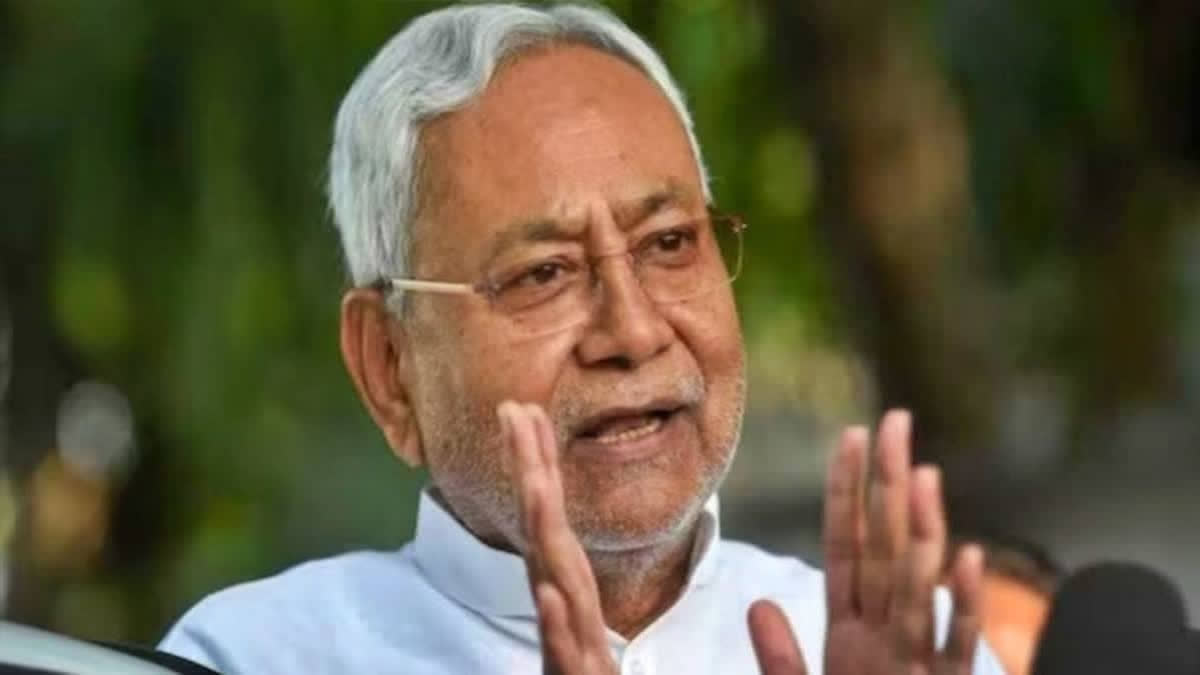Patna: Nitish government's decision to increase the reservation limit for backward communities to 75% is likely to pit itself against the BJP-led Centre, experts said.
After the caste census, the Nitish Kumar-led JDU government has decided to increase the reservation limit for backward castes. Initially, the Bihar government had announced 50% reservation for backward, very backwards and SC-STs. Later, it has been increased to 65%. Notably, Bihar also offers a 10% quota for the economically weaker section (EWS) among the upper castes.
The Supreme Court, however, has fixed the limit of 50% reservation. In such a situation, experts are of the opinion that the issue is bound to go to the Supreme Court.
Recommendation to put the reservation in the Ninth Schedule
The Nitish government recommended the amendment of the Constitution and demanded that the issue be categorised in the Ninth Schedule. It cited the example of Tamil Nadu, where the reservation limit is 69% due to the inclusion in the Ninth Schedule, to strengthen its logic in favour of the argument.
In order to place the issue in the ninth schedule, a constitutional amendment is needed. Speaking on the issue of 75% reservation, Patna High Court Senior Advocate Alok Kumar Sinha said, "It is possible only after amendment of the constitution. Even after the matter goes to the Ninth Schedule, a hearing can be held in the Supreme Court. Also, even without putting it in the Ninth Schedule, the Bihar government can implement it. I'm certain that ultimately, this matter will go to the Supreme Court."
The Nitish government is worried over the fact that if the matter goes to the Supreme Court, it is unlikely that the apex court will give verdict in favour of the proposal. That is why the Nitish government has passed a proposal from the cabinet and recommended to the central government to increase the limit of reservation.
Finance and Parliamentary Affairs Minister Vijay Kumar Choudhary recently claimed that the Centre is also in favour of reservation. "BJP is also giving support, so there should be no problem anywhere. The central government should not have any problem in putting it in the Ninth Schedule. Now, it will be clear who are in favour and who are against," he said.
In a way, Chaudhary spoke of his party's strategy to put pressure on the central government over the issue. Earlier, a proposal sent from Bihar for the abolition of zamindari was sent and the constitution was amended. The reservation, which is also applicable in Tamil Nadu, has been included in the Ninth Schedule. "We also want Bihar's reservation to be put in the Ninth Schedule by the central government to amend the constitution so that it does not fall into judicial confusion," he said.
So, why is the Bihar government worried about reservation? The main reason for this is the decision of the Supreme Court in the Indira Sahni case in 1992. At that time, the court had fixed the maximum limit of caste-based reservation at 50 per cent. A constitution bench of nine judges in the Supreme Court gave the verdict. Only after the decision of the Supreme Court, the decision to increase reservation in Maharashtra, Andhra Pradesh, Chhattisgarh, Orissa and Rajasthan was stopped.
Usually, if a law is included in the Ninth Schedule, it cannot be subject to judicial review. In January 2007, a nine-judge Constitution bench headed by the then CJI YK Sabharwal gave a landmark judgment on the Ninth Schedule. The court clarified that the inclusion of a law in the Ninth Schedule does not necessarily mean that it cannot be subject to judicial review or scrutiny of its constitutional validity.
According to the new caste survey, the total population of Bihar is more than 13 crore. Out of the total population, 27% are other backward class and 36% are extremely backward class. The total population of OBCs is 63% while the Scheduled Caste population is 19% and the Scheduled Tribe population is 1.68%. The general category is 15.52%. Now it remains to be seen what decision the central government takes on this.
Read more:
1) Bihar Cabinet approves proposed quota hike to 75 percent including EWS reservations
2) TN CM Stalin urges PM Modi to include caste census in decadal census exercise



